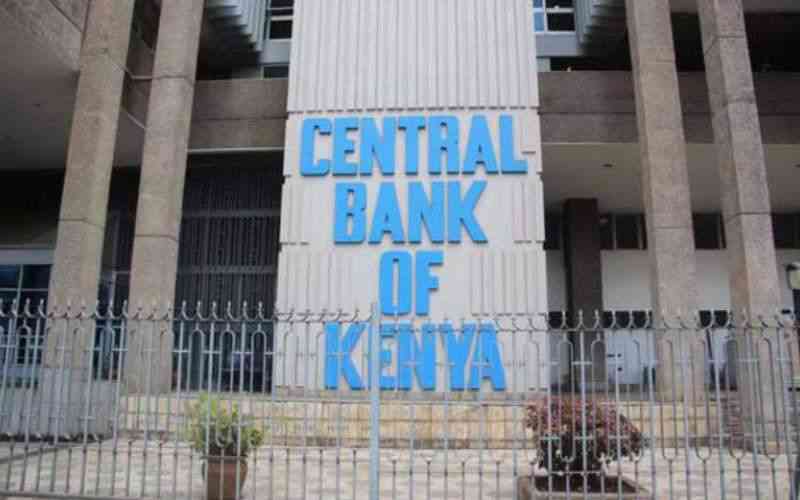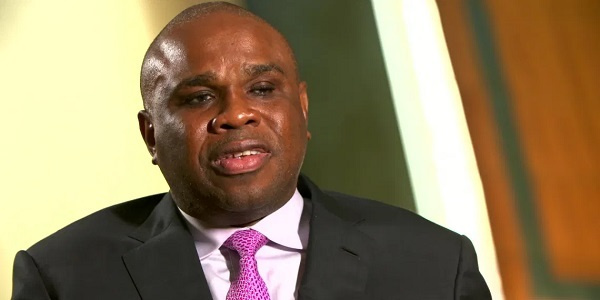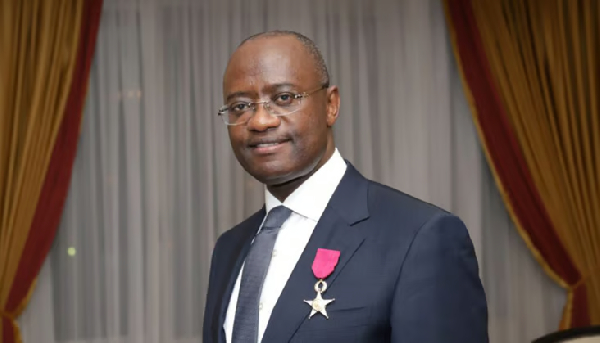President Tinubu Bestows GCON Honour on Afreximbank's Oramah

President Bola Ahmed Tinubu has conferred Nigeria’s second-highest national honor, the Grand Commander of the Order of the Niger (GCON), upon Professor Benedict Oramah, the outgoing President and Chairman of the Board of Directors of the African Export-Import Bank (Afreximbank). This recognition, announced during the 32nd Annual Afreximbank Meetings in Abuja, acknowledges Professor Oramah’s profound and transformative contributions to Africa’s financial and trade development over his decade-long tenure as president, which commenced in 2015 after being one of the institution's pioneering leaders since 1993.
President Tinubu lauded Professor Oramah as a “pivotal figure in shaping Africa’s financial and trade landscape,” emphasizing that “Africa must remember those who chose to shape its destiny.” Under Oramah’s steadfast leadership, Afreximbank witnessed remarkable growth, with its assets expanding from $5 billion to over $37 billion, and subsequently reaching $43.5 billion by April 2025. The bank also mobilized over $250 billion for trade and development across the continent, with an impressive $140 billion secured in the last decade alone.
Afreximbank, under Professor Oramah, has championed several critical initiatives. These include leading Africa’s response to the COVID-19 pandemic by facilitating access to 400 million vaccines, driving industrialization, bolstering the African Continental Free Trade Area (AfCFTA), and supporting the continent’s burgeoning creative economy. Nigeria, in particular, has been a significant beneficiary, receiving over $52 billion in support directed towards key sectors such as energy, agriculture, infrastructure, manufacturing, healthcare, and the creative industries. Flagship projects like the Dangote and BUA Refineries, the African Medical Centre of Excellence, and the African Quality Assurance Centre stand as testaments to Afreximbank’s confidence in Nigeria’s future and Africa’s vast potential.
A major stride towards greater financial independence and deeper integration is Nigeria’s formal approval of the Pan-African Payment and Settlement System (PAPSS). This innovative system, spearheaded by Afreximbank in collaboration with the AfCFTA Secretariat and the African Union Commission, aims to integrate Africa’s 42 existing payment systems. PAPSS enables real-time, cross-border trade in local currencies, thereby reducing reliance on foreign exchange, promoting economic stability, and eliminating the need for external intermediaries. This is projected to save African nations billions in annual transaction costs, with an estimated $5 billion in leakages currently occurring due to inefficient cross-border payment systems. President Tinubu urged all African countries to embrace PAPSS, stressing that “deeper financial integration strengthens our collective resilience.”
Nigeria’s collaboration with Afreximbank is expanding in scope and ambition, marked by the upcoming launch of the Africa Energy Bank. Headquartered in Abuja, this new institution will begin with an initial capital of $5 billion, dedicated to financing Africa’s energy transition through leveraging gas, renewables, and clean technologies. Furthermore, Nigeria is scaling its fertilizer sector to an annual capacity of 7.5 million tonnes with Afreximbank’s support, aiming to become the continent’s fertilizer hub and enhance food security. Transformative infrastructure projects, such as the $3.5 billion Bakassi Deep Seaport, are also enhancing trade infrastructure and market access across the region.
President Tinubu utilized the platform to highlight Nigeria’s recent economic reforms under his “Renewed Hope Agenda.” These tough but necessary measures include the removal of the long-standing fuel subsidy, the unification of the exchange rate system, and comprehensive tax restructuring. The president noted that these reforms are yielding promising results, contributing to a 3.4 percent GDP growth in 2024, a rebound in oil production to 1.5 million barrels per day (with a target of 2.5 million), easing inflation, stabilizing the naira, recovering investor confidence, and a significant reduction in debt servicing from 96 percent to below 65 percent of government revenue.
Beyond macroeconomic stability, the administration has focused on empowering citizens and thriving enterprises. Over 100,000 Nigerians have accessed the new national consumer credit scheme, with 400,000 more queued for the next phase. A landmark student loan program ensures access to higher education regardless of financial hardship. Significant investments have also been made in healthcare, with N45.9 billion allocated to upgrade 8,800 primary health centers, improving maternal care and diagnostics. Digital inclusion is being advanced through the deployment of thousands of fiber-optic cables, while infrastructure development sees 279 roads completed, 65 under construction, and 260 rural road interventions, including major arteries like the Lagos–Calabar Coastal Highway and the Abuja–Kaduna–Kano Road.
Prominent African business leaders also spoke at the event, underscoring the importance of these initiatives. Mr. Aliko Dangote, President/Chief Executive of Dangote Group, advocated for Africa’s growth through value addition to its mineral resources, discouraging dumping, and promoting an “Africa First” initiative. He stressed the need for governments to support local businesses to incentivize foreign investment and lamented that lack of electricity and inconsistent policies hinder industrialization. Dangote acknowledged Afreximbank’s crucial role in financing projects like the Dangote Refinery and highlighted Nigeria’s emergence as the largest cement exporter in Africa. Mr. Tony Elumelu, Founder/Chairman of Heirs Holdings, attested to an improved investment climate across Africa, emphasizing the need to support development finance institutions. He shared how Afreximbank’s support enabled Heirs Energies to acquire an oil well and urged businesses to honor loan obligations to ensure the bank’s continued impact. Both leaders stressed the critical importance of reliable electricity and targeted interventions for youth development.
In his closing remarks, President Tinubu urged African leaders in both public and private sectors to intensify efforts towards greater integration, streamlined payment systems, trade facilitation, and partnerships for regional development. He declared, “As the world becomes increasingly fragmented—with rising protectionism and shifting trade dynamics—Africa must double down on its institutions and capabilities.” He called for Afreximbank, backed by committed member states, to remain agile, bold, and grounded in African realities, asserting that “A united and purposeful Africa can define its destiny.” The meetings were attended by several dignitaries, including former Presidents Olusegun Obasanjo of Nigeria, Nana Akufo-Addo of Ghana, Macky Sall of Senegal, and Mahamadou Issoufou of Niger, as well as former Nigerian Vice Presidents Namadi Sambo and Yemi Osinbajo.
You may also like...
Changing Cultures: How Africa Sips It's Alcohol

Discover which countries sip the most alcohol in Africa, and the health impacts this could have on the long run.
SEC Confirms Ripple's Victory: Legal Battle Concludes as Fundraising Greenlit!

The U.S. Securities and Exchange Commission has concluded its lengthy legal battle with Ripple, issuing a critical waive...
Legal Firestorm: South Korean Ex-President's Wife Targeted in High-Stakes Arrest Warrant

South Korean investigators have secured an arrest warrant for Kim Keon Hee, the wife of jailed former President Yoon Suk...
ASEAN-Brokered Breakthrough: Thailand & Cambodia Edge Closer to Historic Border Deal

Thailand and Cambodia engaged in high-level talks in Malaysia, initiated by ASEAN, to address escalating border tensions...
Kenya's Central Bank Slashes Key Rate to 9.5%: Economic Impact Looms

Kenya's Central Bank has lowered its benchmark rate to 9.50 percent, continuing its policy to stimulate economic activit...
Is Humanity Trading Connection for AI Comfort? A Deep Dive

As individuals increasingly turn to AI for emotional support, questions arise about the erosion of human connection. Thi...
Local Tragedy: Hotel Under Construction Collapses in Edo, Claims Owner's Life

A hotel under construction in Uromi, Benin City, collapsed, tragically killing its owner, Andrew Isesere. Eyewitnesses a...
Naked Gun Remake Delivers Laughs, Neeson & Anderson's Chemistry Wows!

This season's film releases offer a diverse lineup, highlighted by the highly successful "The Naked Gun" remake, starrin...




